Five college faculty elected AAAS fellows
The American Association for the Advancement of Science (AAAS), renowned as one of the largest scientific societies globally and publisher of the Science family of journals, announced the election of five faculty members across the College of Liberal Arts and Sciences to its newest class of fellows.
The prestigious distinction, a lifelong honor within the scientific community, was bestowed upon 502 scientists, engineers, and innovators across 24 disciplines worldwide. Each honoree works to instill trust in science within the academic community and spearhead the advancement of scientific accomplishments while mentoring the next generation of scientists.
The AAAS initiated its lifetime recognition program in 1874, approximately 25 years after its inception. Now in its 150th year, the program welcomes a cohort that embodies scientific excellence. They join a distinguished list of previous Fellows, including W.E.B. Du Bois, Mae Jemison, and Thomas Edison.
The newly elected Fellows will be honored with a certificate and a gold and blue rosette pin symbolizing science and engineering, respectively, to commemorate their election. A celebratory forum will take place on Sept. 21, 2024, and that evening, the AAAS will mark the program’s 150th anniversary at the National Building Museum in Washington, D.C.
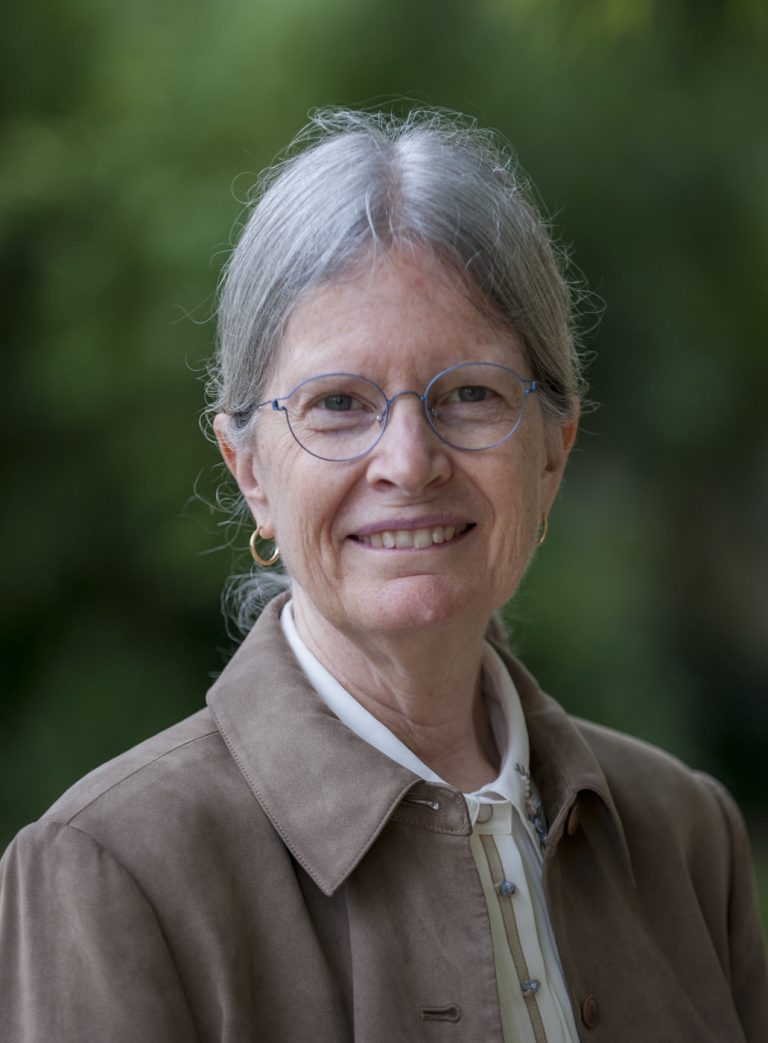
Karen Bjorndal: For distinguished contributions to understanding the biology and conservation of sea turtles worldwide, with field programs in many countries, and to fostering marine conservation more broadly.
Karen Bjorndal, a distinguished professor of biology and director of UF’s Archie Carr Center for Sea Turtle Research, is internationally recognized for her pioneering work in understanding the biology and conservation of sea turtles. Specializing in nutritional ecology and sea turtle biology, her research explores the crucial role of nutrition in influencing the growth and reproductive output of these vertebrate herbivores. Through field programs across multiple countries, Bjorndal has provided invaluable insights into sea turtle populations’ connectivity in the Atlantic and their broader impact on marine ecosystems. Additionally, her mentorship nurtures the next generation of researchers in marine conservation.
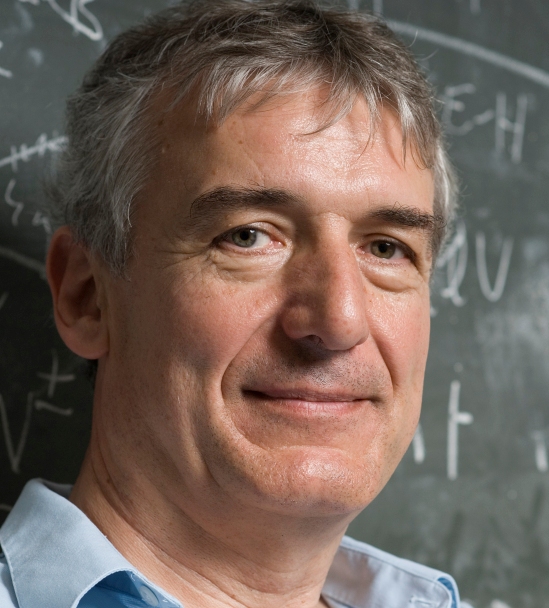 Pierre Sikivie: For pioneering work on cosmological axions and methods to detect them.
Pierre Sikivie: For pioneering work on cosmological axions and methods to detect them.
Pierre Sikivie, a distinguished professor of physics, is celebrated for his groundbreaking work on axions and their cosmological implications. He has made significant contributions to the field of theoretical physics, inventing both the axion haloscope and axion helioscope. Sikivie’s research has been instrumental in advancing the field, particularly in the development of the Axion Dark Matter eXperiment (ADMX) and laying the theoretical groundwork for detecting dark matter axions. Sikivie’s work has earned him prestigious honors, including the 2020 Sakurai Prize, a fellowship in the American Physical Society, and the Jesse W. Beams Medal.
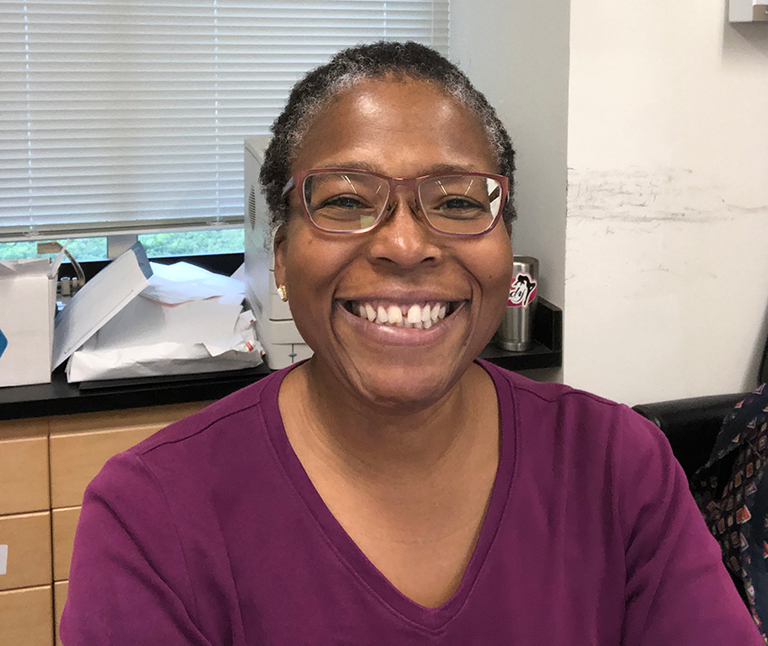 Phoebe Stubblefield: For distinguished contributions to the field of forensic anthropology, particularly for her forensic humanitarian work for the 1921 Tulsa Race Massacre Investigation.
Phoebe Stubblefield: For distinguished contributions to the field of forensic anthropology, particularly for her forensic humanitarian work for the 1921 Tulsa Race Massacre Investigation.
A renowned forensic anthropologist, Phoebe Stubblefield has advanced the field with pioneering research in human skeletal variation, identification, and paleopathology. Since 1990, she has led efforts to recover and analyze human remains as part of the ongoing investigation into the 1921 Tulsa race massacre. Her commitment to uncovering historical truths and preserving the memories of the victims is evident in her work. Stubblefield also serves as the interim director of the C.A. Pound Human Identification Laboratory.
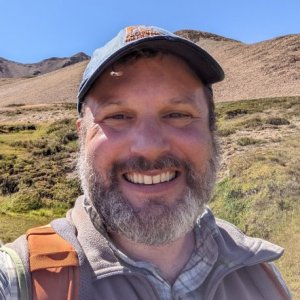 David Blackburn: For distinguished contributions to the field of biodiversity and evolutionary biology, particularly for understanding the diversity and evolution of frogs and making museum specimens more widely available.
David Blackburn: For distinguished contributions to the field of biodiversity and evolutionary biology, particularly for understanding the diversity and evolution of frogs and making museum specimens more widely available.
David Blackburn, curator of herpetology at UF’s Florida Museum of Natural History, is a leading biologist with extensive research experience. Serving as an affiliate faculty in the college’s Department of Biology and the Center for African Studies, he brings robust expertise to his position. As associate chair of the Department of Natural History, he oversees research and collections efforts, guiding faculty, curators, and students. Blackburn is committed to diversity and inclusion in science, driving initiatives at iDigBio to engage underrepresented students in biodiversity research. His career is marked by a dedication to sharing his research with diverse audiences, collaborating with exhibit teams, museum educators, and teachers to promote understanding of museums, evolution, and amphibians.
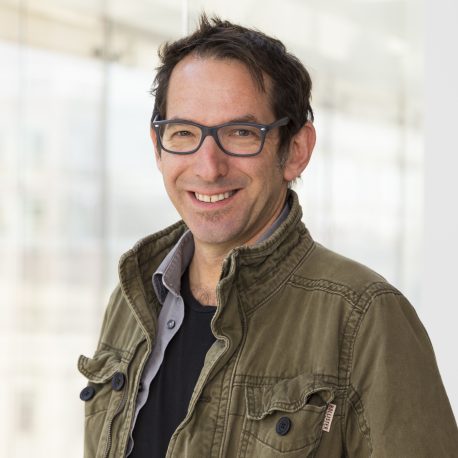 Robert Guralnick: For distinguished contributions to biodiversity informatics and global change biology, particularly for developing new tools for assembling biodiversity data and knowledge, and supporting public participation in science.
Robert Guralnick: For distinguished contributions to biodiversity informatics and global change biology, particularly for developing new tools for assembling biodiversity data and knowledge, and supporting public participation in science.
Robert Guralnick, a scientist at the Florida Museum of Natural History, uses digital data to comprehend and safeguard Earth’s biodiversity. As the museum’s curator of biodiversity informatics, Guralnick tracks shifts in biodiversity over time by digitizing collections and synthesizing large datasets. With over 200 publications and grants exceeding $7 million, his interdisciplinary approach has garnered acclaim within the scientific community. He holds affiliate appointments in the Departments of Biology, Geological Sciences, and Anthropology.
Most recently, Guralnick has focused on investigating the impacts of climate and landscape changes on biodiversity, collaborating on projects such as compiling databases of butterfly species and linking animal records across biological and archaeological domains.
Explore the 12 UF faculty members elected to the 2023 class of AAAS Fellows here.
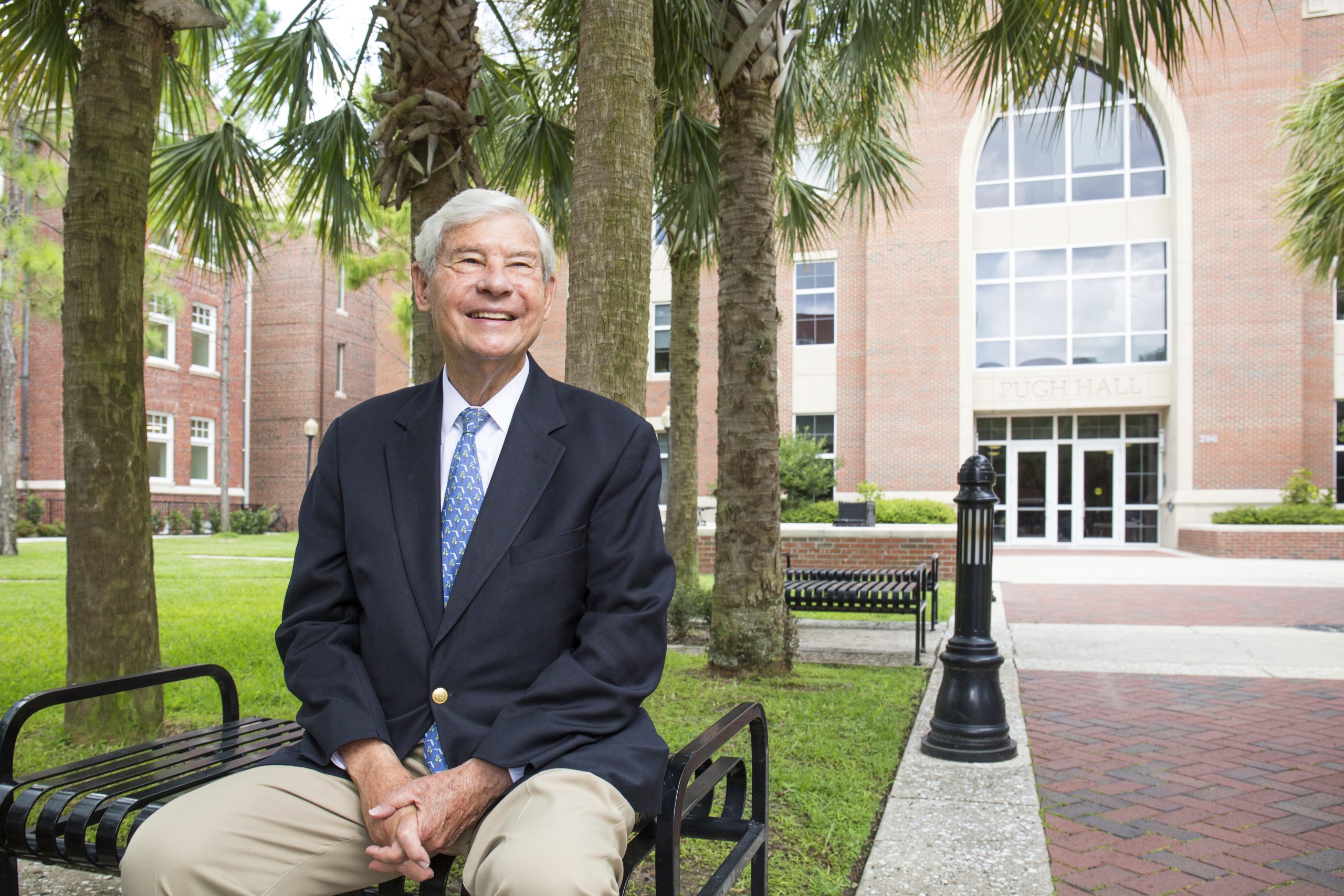
Remembering Bob Graham, a titan of public service
The University of Florida community celebrates the lasting legacy of Bob Graham
It’s hard to imagine anyone leaving a more profound impact on the state of Florida than Daniel Robert “Bob” Graham. A lifelong public servant, preeminent University of Florida alumnus, and one of Florida’s most beloved elected officials, Graham’s influence is woven into the very fabric of our state. Though Graham passed away on April 16, 2024, at the age of 87, his legacy will endure for generations to come.
Graham dedicated nearly four decades to serving the people of Florida at the local, state, and national levels. As a state legislator, governor (1978-1987), and three-term U.S. senator (1987-2004), Graham played an integral role in shaping modern Florida’s history and addressing a myriad of critical public policy issues. Graham’s career exemplified integrity, dedication, and steadfast commitment to the betterment of his community and the state.
It all began at UF, where he graduated in 1959 with a bachelor’s degree in political science. As a student, Graham quickly distinguished himself as a leader. Among his earliest official titles were “UF Honor Court Chancellor Graham” and “President Graham of the Epsilon Zeta chapter of Sigma Nu Fraternity” – before becoming Governor Graham, Senator Graham, Chairman Graham, then, affectionately, “Doodle” by his grandchildren.
“Senator Bob Graham emerged from our university with a heart for public service,” UF President Ben Sasse said. “He prized finding common ground rather than sowing division — and he was a champion of democracy and civic engagement.”
Throughout the years, Graham’s connection to UF grew. In 2006, he established the Bob Graham Center for Public Service. Located in Pugh Hall, the Graham Center also houses Graham’s personal office, symbolizing his enduring presence on campus.
“Graham loved the university and especially its students, whom he relished meeting whenever he was on campus,” said Matthew Jacobs, director of the Bob Graham Center for Public Service.
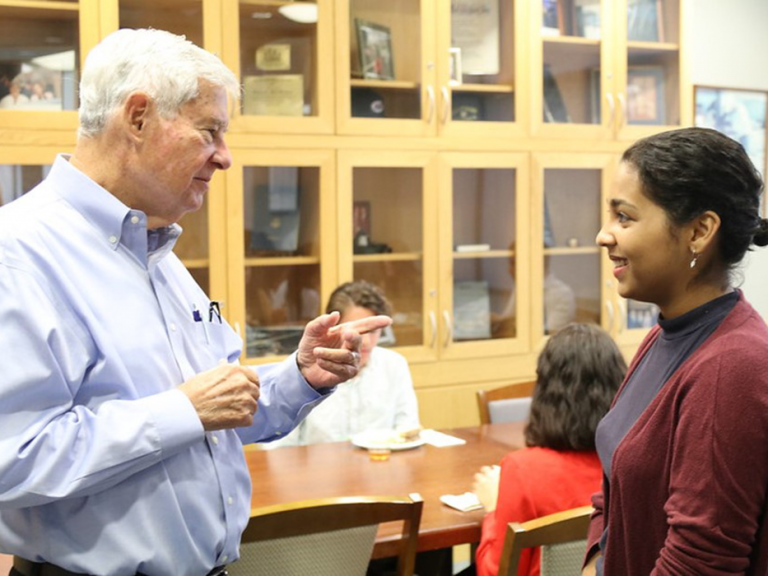
Having played a pivotal role in Florida’s rise from a predominantly rural Southern backwater to an economic and political powerhouse, Graham founded the Graham Center to promote civic engagement and to train the next generation of Sunshine State leaders.
In a video interview in 2018, Graham said, “What we’re trying to do at the Graham Center is encourage young people and people of all ages to learn about their communities by actually getting involved. Democracy was never intended to be a spectator sport; it’s always been participation. People need the opportunities to participate and they need the skills to participate effectively.”
Today, the Graham Center has become a vital hub for civic engagement and intellectual discourse. Through internships, research, and guest lectures, it equips UF students with the tools and knowledge to become active citizens and leaders. Frequent public programs and lectures ensure broader community involvement, on both political and non-political topics. Following Graham’s example, the center frequently collaborates with local and state governments, universities, institutes, NGOs, and other civic institutions to support initiatives focused on engagement, leadership, and service.
“It has truly been an honor to work with Bob Graham for over a decade through his namesake Center for Public Service,” said David E. Richardson, dean of the College of Liberal Arts and Sciences. “We became friends, and I will never forget his clear vision, kindness, non-partisan embrace of higher education, and love for our students. He has been a model for selfless service to Florida and the nation.”
Graham’s unwavering generosity also serendipitously led him to the person who would alter his personal life. It was on the steps of Tigert Hall that he stumbled into Adele Khoury, a UF freshman struggling with a physical science course and looking for a tutor. He offered his assistance, and their bond blossomed. Before graduating from UF, the couple became engaged, embarking on a remarkable 63-year marriage.
Graham is remembered across the state for guiding Florida’s growth as a Sunbelt powerhouse. He was a strong proponent of education, economic opportunity, and the environment, founded on his belief in the possibility of a positive relationship between politicians and the people they represent. He endeared himself to the people of Florida through a nationally recognized “Workdays” campaign that brought him to work in dozens of jobs for full days with minimal media presence.
A Champion of Public Service
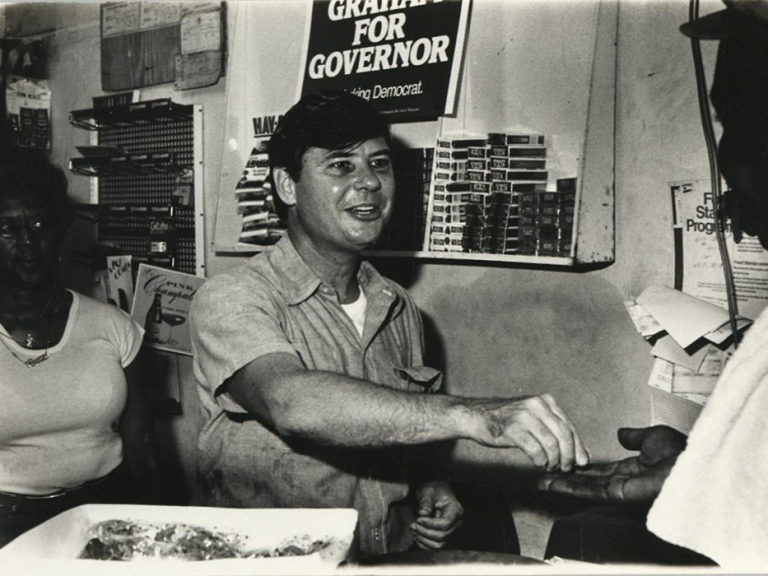
Graham possessed a genuine, kind, and humble spirit often considered to be unparalleled on the national stage. He pioneered a political style grounded in hard work and experiential learning – demonstrating that a politician can remain honest while achieving remarkable success. He left Florida’s governorship with an 83% approval rating in the state, reflecting the deep connection he had with the people of the state.
He is remembered on the national level for achieving remarkable progress during his time in office. He worked across the political aisle as a national figure in the Democratic party who strived for bipartisanship, connecting with others on a genuine level to achieve results for the public. He advocated for civics to have a central role in education and shared the stories of Florida with the rest of the country.
He is remembered internationally for his expertise on foreign policy and intelligence and emphasis on justice, informing his steady leadership following the Sept. 11, 2001, terrorist attacks.
Graham had a well-known habit of meticulously logging his daily activities on pocket notebooks. His larger-than-life legacy is recorded in over 4,000 journals filled with Gov. Graham’s daily observations and encounters, which are now housed at the University of Florida George A. Smathers Libraries.
Upon retiring from the U.S. Senate in January 2005, Graham served for a year as a senior fellow at the Harvard Kennedy School of Government. During that year, he began developing plans for a center modeled on the Kennedy School’s Institute of Politics to be located at the University of Florida.
“He founded the Bob Graham Center to help students develop the skills necessary for effective civic engagement, public leadership, and public service, and to create opportunities for students to ‘learn by doing,’ exemplified by his hundreds of memorable ‘work days,’” Jacobs said. “While we are deeply saddened by Bob Graham’s passing, we embrace the opportunity to continue building on his legacy through the Bob Graham Center for Public Service.”
The family has asked that expressions of sympathy may be made in the form of donations to the Bob Graham Center here.
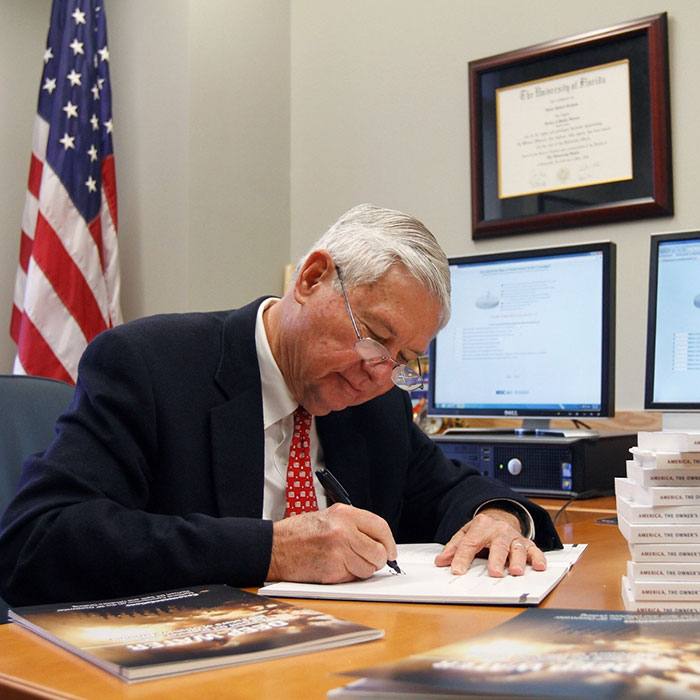
A Visual Tribute to Bob Graham’s Legacy
Two CLAS professors named Distinguished Teaching Scholars
Jonathan Martin and Selman Hershfield recognized for innovative teaching and exemplary research
Two professors in the College of Liberal Arts and Sciences at the University of Florida have been named Distinguished Teaching Scholars by the Academy of Distinguished Teaching Scholars, an advisory board that aims to elevate teaching excellence and celebrate faculty who go above and beyond for their students.
The 2024 inductees — Jonathan Martin, in the Department of Geological Sciences, and Selman Hershfield, in the Department of Physics — will serve for three years on the advisory board for the Provost’s Office, assisting in developing programs and promoting policies that enhance the professional careers and experiences of faculty. However, the designation as Distinguished Teaching Scholars will follow them throughout their careers as they continue to be part of the Academy.
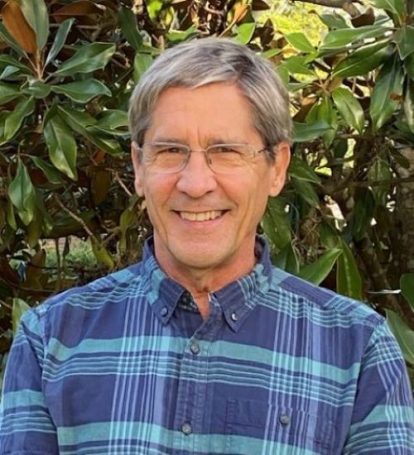
Martin, professor and associate chair of the Geological Sciences, first came to UF in 1994, and has since served many roles in teaching, research, and administration. His research and teaching focuses on groundwater: how it interacts with the world around us, a field known as hydrogeochemistry. Recent research projects include how saltwater intrusions affect coastal aquifers and how both the carbon cycle and the melting of the Greenland Ice Sheets affect the chemistry and scope of greenhouse gasses.
In the classroom, Martin uses a teaching method called Team-Based Learning, or TBL in all of his classes. He describes this approach as a “flipped classroom,” where students study assigned materials before lectures and take low-stakes tests in class. After individuals complete their tests, students re-take the test as a team, which are fixed for the entire semester, sharing information and perspective amongst themselves in order to understand the material on a deeper level. Tests are graded on the spot so the results can guide lectures and further discussions.
“I’ve found this method provides students with a deeper understanding of the material and improves comradery and engagement in the class,” Martin explained. “I’d like to thank one of my former colleagues, Rachel Walters, for introducing me to TBL and guiding me through my first few efforts at using it.”
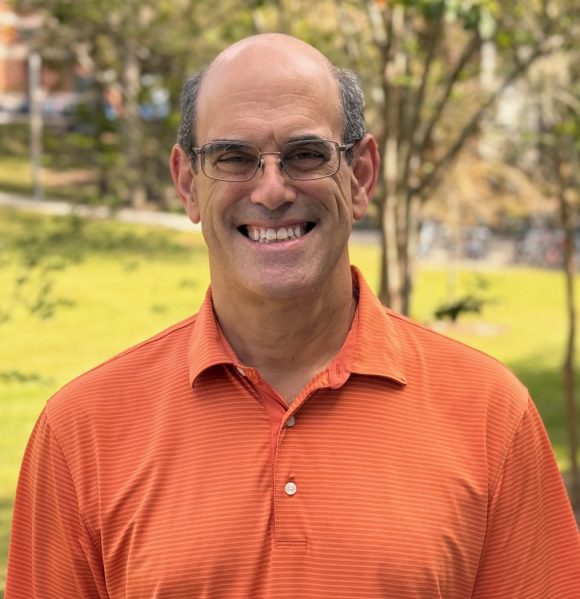
Hershfield, professor and undergraduate coordinator, joined the Department of Physics in 1992 as an assistant professor. He has served many roles for the college over the last three decades. His interest in theoretical condensed matter physics made him a great fit for the National High Magnetic Field Laboratory initiative, and his research since has earned him several awards, such as the Cottrell Scholars award, an NSF National Young Investigator award, and a College Teacher of the Year award.
Like Martin, Hershfield believes that the key to keeping students interested is to engage them directly. He is a huge proponent of active learning, an approach he has cultivated through years of teaching undergraduate students, graduate students, and, in one instance, K-12 teachers as part of a collaboration with the UF College of Education. He engages students by encouraging collaboration on projects in and outside the classroom, and provides hands-on learning activities whenever possible.
“It is an honor to join the Academy, especially when you look at the people who received it in the past,” Hershfield said. “There are many people I’d like to thank for helping me along the way, including Rose Pringle, Kevin Ingersent, Amlan Biswas, Angela Lindner, and Trysh Travis and the rest of the UF Quest leadership team.”
Learn more about the Academy of Distinguished Teaching Scholars and previous honorees here.
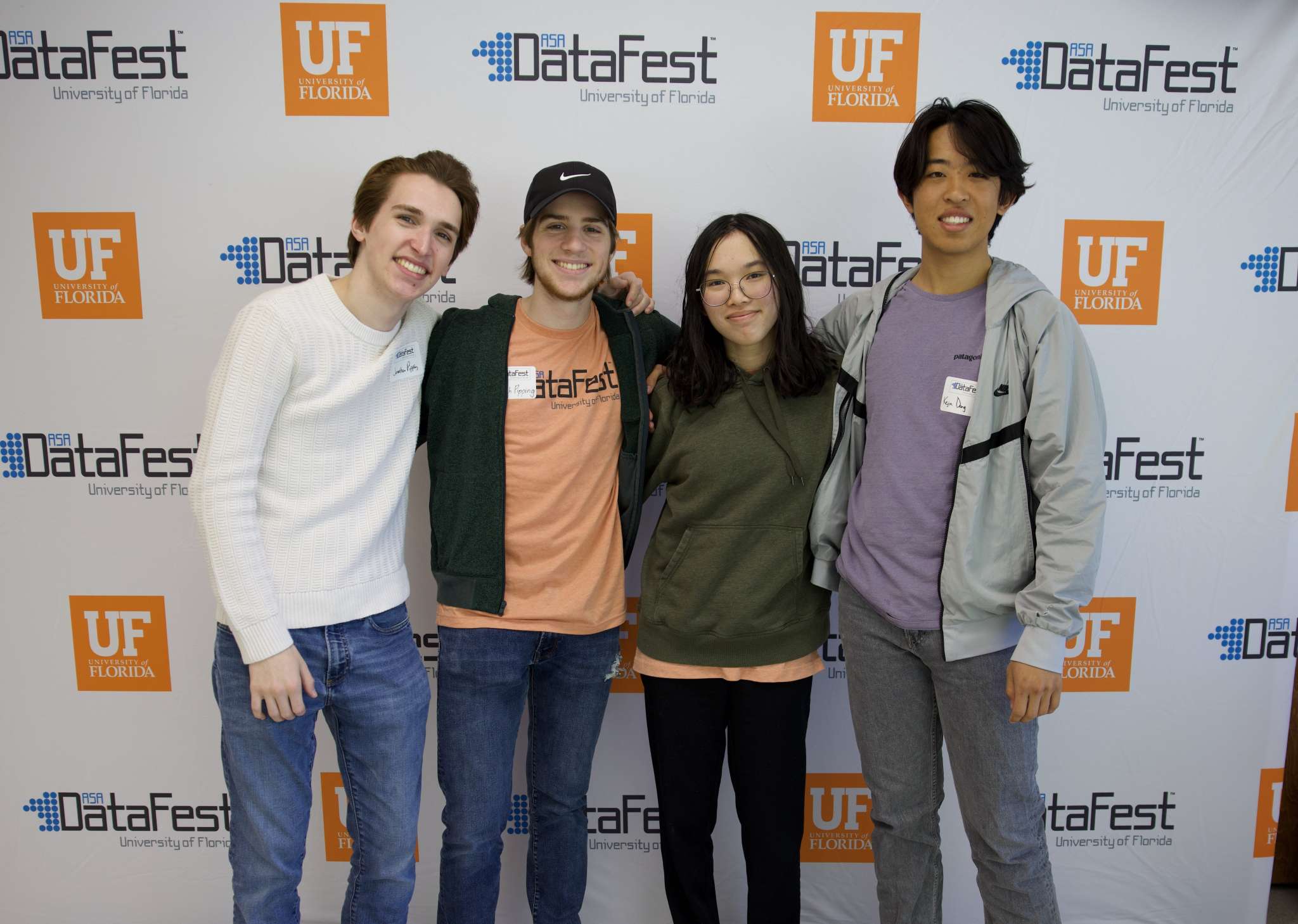
A whirlwind of big data: Recapping DataFest 2024

Photo by Christoph Burgstedt/Adobe Stock.
Researchers create a new AI pipeline for identifying molecular interactions
AI developments in chemical biology could unlock new types of disease treatments
Understanding how proteins interact with each other is crucial for developing new treatments and understanding diseases. Thanks to computational advances, a team of researchers led by Assistant Professor of Chemistry Alberto Perez have developed a groundbreaking algorithm to identify these molecular interactions.
Perez’s research team included two graduate students from UF, Arup Mondal and Bhumika Singh, and a handful of researchers from Rutgers University and Rensselaer Polytechnic Institute. The team published their findings in Angewandte Chemie, a leading chemistry journal based in Germany.
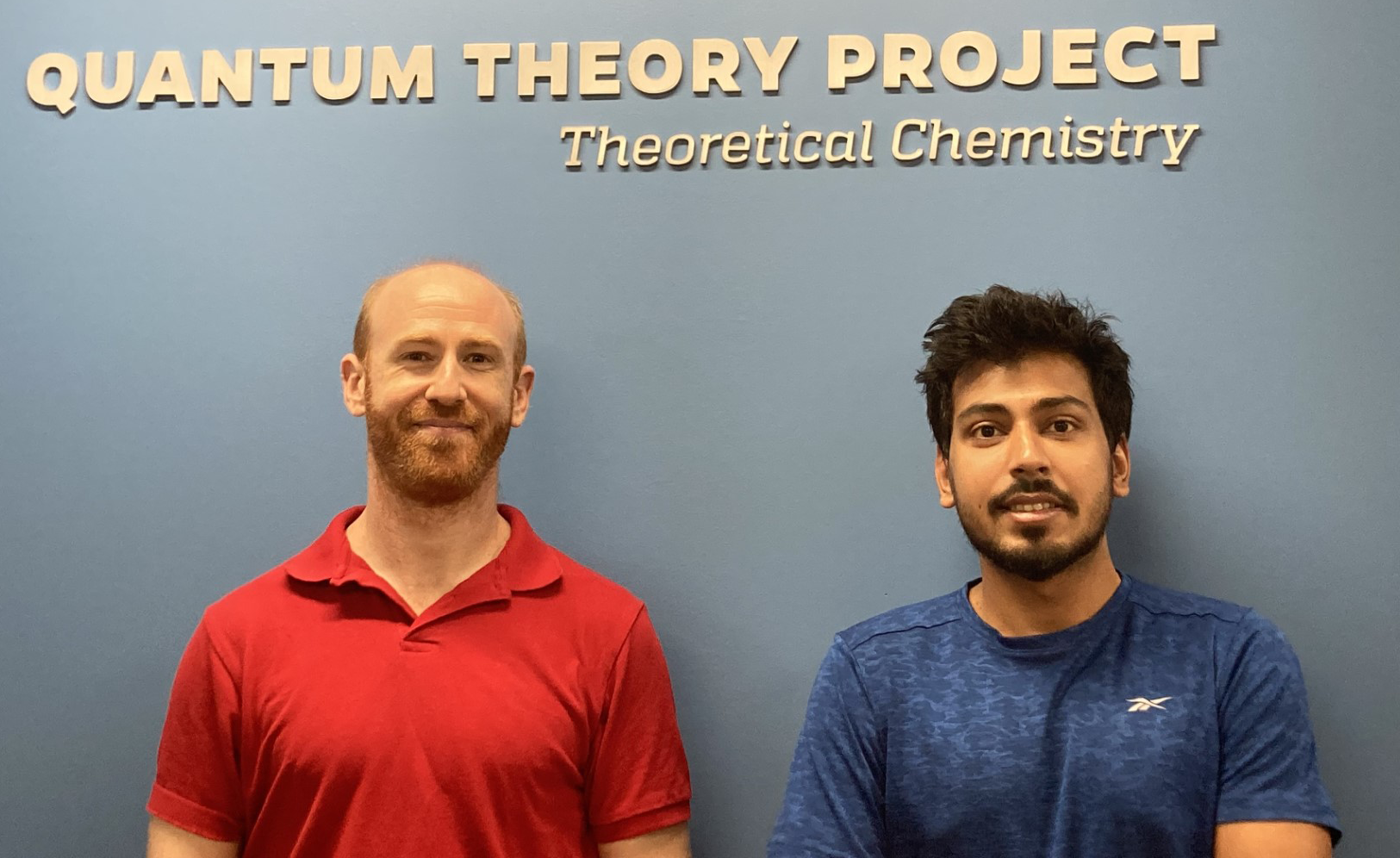
Named the AF-CBA Pipeline, this innovative tool offers unparalleled accuracy and speed in pinpointing the strongest peptide binders to a specific protein. It does this by using AI to simulate molecular interactions, sorting through thousands of candidate molecules to identify the molecule that interacts best with the protein of interest.
The AI-driven approach allows the pipeline to perform these actions in a fraction of the time it would take humans or traditional physics based-approaches to accomplish the same task.
“Think of it like a grocery store,” Perez explained. “When you want to buy the best possible fruit, you have to compare sizes and aspects. There are too many fruits to try them all of course, so you compare a few before making a selection. This AI method, however, can not only try them all, but can also reliably pick out the best one.”
Typically, the proteins of interest are the ones that cause the most damage to our bodies when they misbehave. By finding what molecules interact with these problematic proteins, the pipeline opens avenues for targeted therapies to combat ailments such as inflammation, immune dysregulation, and cancer.
“Knowing the structure of the strongest peptide binder in turn helps us in the rational designing of new drug therapeutics,” Perez said.
The groundbreaking nature of the pipeline is enhanced by its foundation on pre-existing technology: a program called AlphaFold. Developed by Google Deepmind, AlphaFold uses deep learning to predict protein structures. This reliance on familiar technology will be a boon for the pipeline’s accessibility to researchers and will help ensure its future adoption.
Moving forward, Perez and his team aim to expand their pipeline to gain further biological insights and inhibit disease agents. They have two viruses in their sights: murine leukemia virus and Kaposi’s sarcoma virus. Both viruses can cause serious health issues, especially tumors, and interact with as-of-now unknown proteins.
“We want to design novel libraries of peptides,” Perez said. “AF-CBA will allow us to identify those designed peptides that bind stronger than the viral peptides.”
Read the full study here.
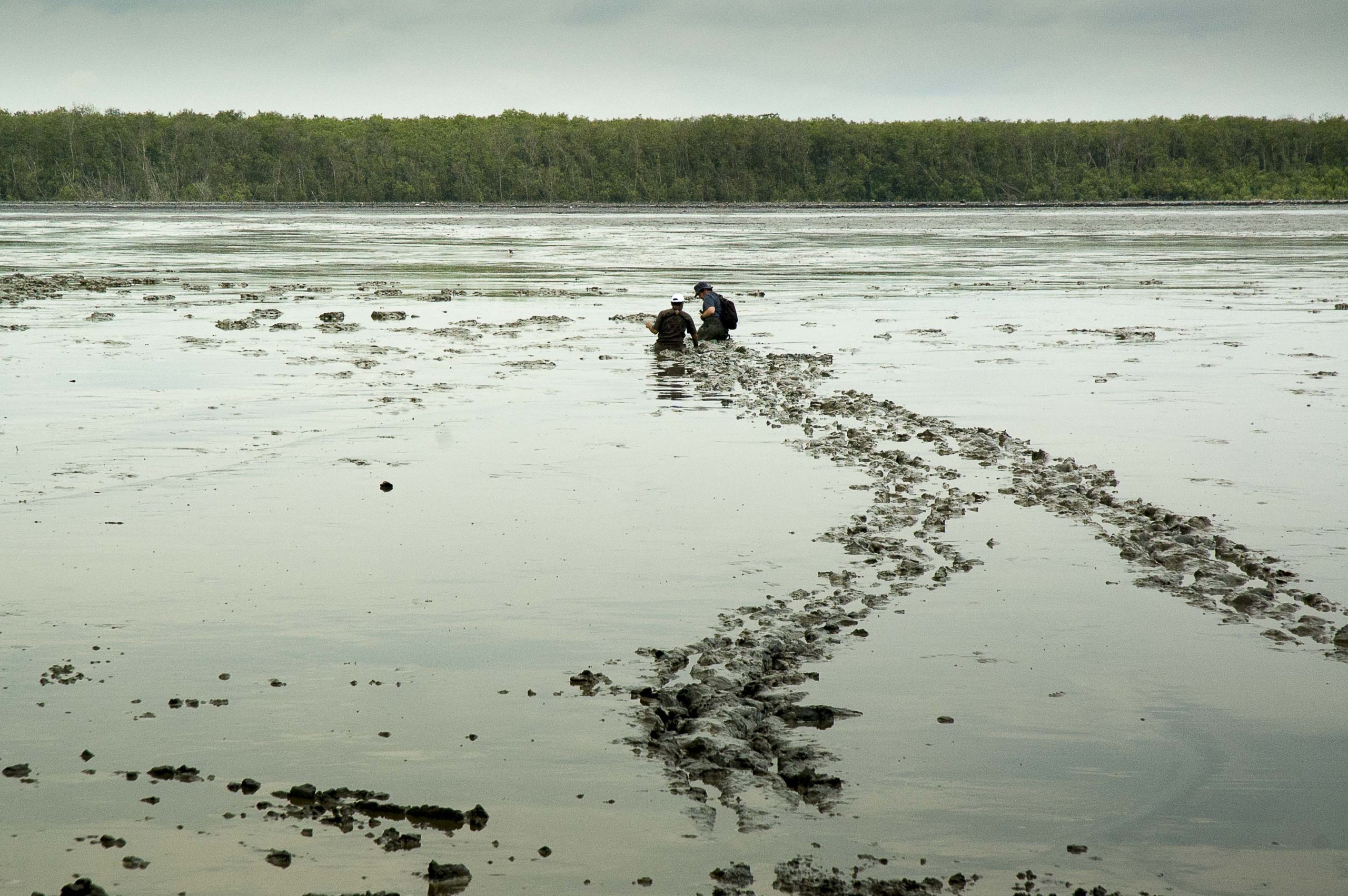
Tidal flats fringe much of the world's coastline, and are similar in area globally to mangrove ecosystems. Here, extensive tidal flats are exposed at low tide off the East coast of Sumatra, Indonesia. Photo by Nicholas Murray.
Humans shape the journey of mud, study reveals
Mud can be surprisingly clear. A global team of scientists has uncovered a hidden truth: Human actions are shaping the journey of mud. Over the course of decades, our activities have wielded significant influence over the movement and dispersion of mud, affecting carbon storage and cycling worldwide.
The new study, led by University of Florida biogeochemist Thomas S. Bianchi, holds significant implications for understanding historical climate shifts and potential future scenarios. The researchers identified direct links between human activities and the movement of mud from its source to its destination.
Published today in Nature Geoscience, the research examines the heightened flow of mud and related organic carbon in diverse environments. The study was featured as the journal’s cover story. The team identified direct links between human interventions, such as dam construction, levee-building, and land-use changes, and the reshaping of mud flow patterns globally.
Mud holds profound insights into how our planet operates. It serves as a linchpin in how carbon moves around our planet. It’s a key player in regulating Earth’s climate by storing and cycling carbon. Mud also acts as a repository for organic carbon, playing a pivotal role in its sequestration and burial across landscapes.
“Mud has been an essential component in shaping the planet’s ecosystems and the organisms that inhabit them,” said Bianchi. “This link between mud and microbial evolution is relevant to understanding past and potential future shifts in weathering, biogeochemical cycles, and climate.”
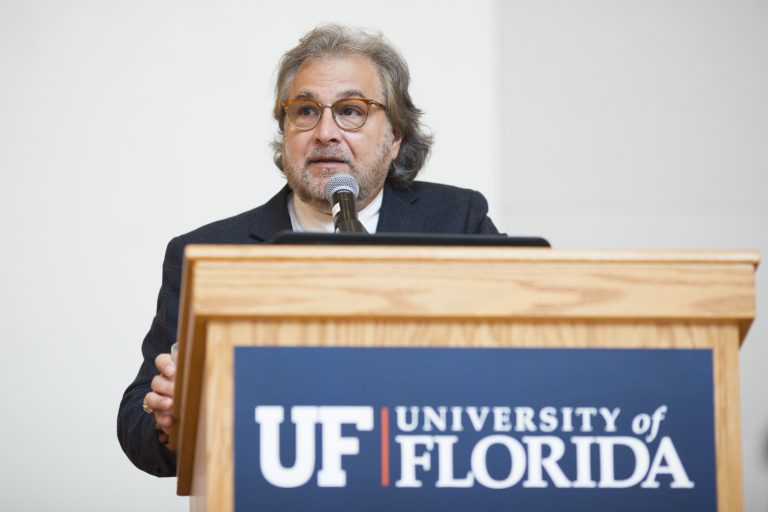
According to Bianchi, humans have had a long and complex relationship with mud throughout history. It’s been an essential resource to cultures and societies worldwide, but human activities have long interfered with mud processes. This has been expedited since the start of the second half of the 20th century, a time of dramatic surge across human activity known as the Great Acceleration.
“The history of Earth’s climate has sparked widespread interest in the field of geosciences,
said Bianchi, “particularly focusing on the connections between mud and organic carbon that emerged in the mid-1800s.”
While much attention has been given to the thawing of carbon in colder regions, explains Bianchi, the scientific community is just beginning to grasp the implications of climate change for the stability of carbon in mud, particularly in tropical areas.
“Given that the destiny of mud-organic carbon significantly increases greenhouse gas emissions and carbon sequestration and burial in the biosphere, crucial questions are remaining about how these human-driven alterations will influence the carbon cycle and climate in the 21st century,” Bianchi said.
Looking ahead, Bianchi is preparing for further studies to expand on the global-scale assessment of mud-organic carbon changes. With advancements in analytical techniques and data aggregation tools, he says, we can now quantify these changes on a global scale compared to historical conditions.
Bianchi also notes that while human activities have increased the movement and burial of mud-organic carbon from sources such as mountain glaciers, land erosion, dams and reservoirs, permafrost melting, and coastal areas, other environments need further exploration. While the specific effects on tidal flats and floodplains remain uncertain, Bianchi says, coastal wetlands are likely experiencing a net decrease.
“We plan to continue to look across mud transport across landscapes, from the mountains to the sea, to explore how humans continue to change the biosphere and how that impacts greenhouse gas cycling,” he said.
Read the full study here.
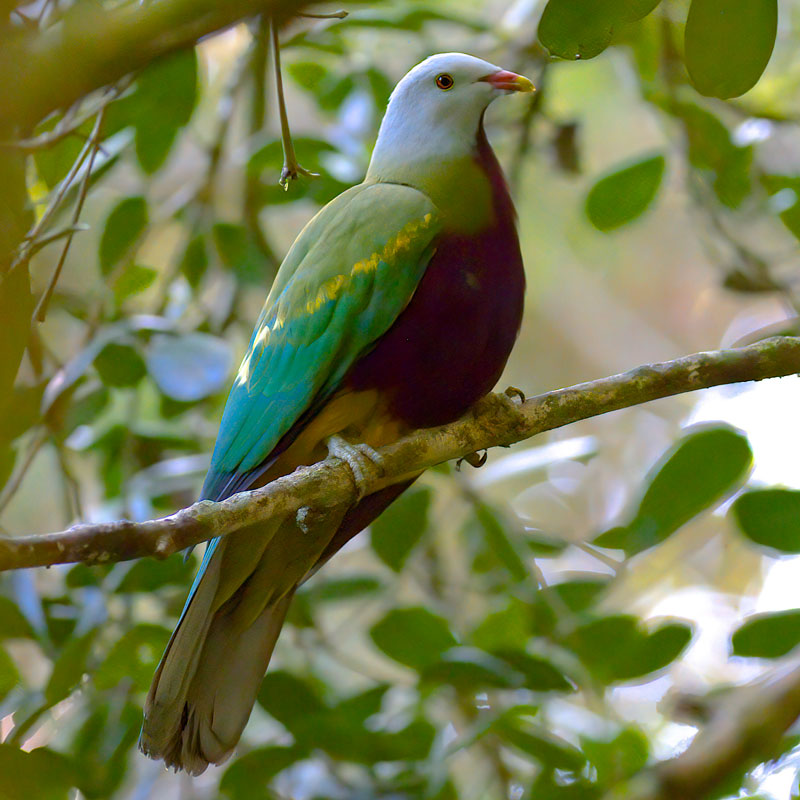
We’ve had bird evolution all wrong

Woman is looking on solar eclipse through three sunglasses. Sun eclipse concept.
How to safely observe 2024 total solar eclipse, according to UF astronomy professors

How Are Women Helping Shape The Amazon In Colombia?
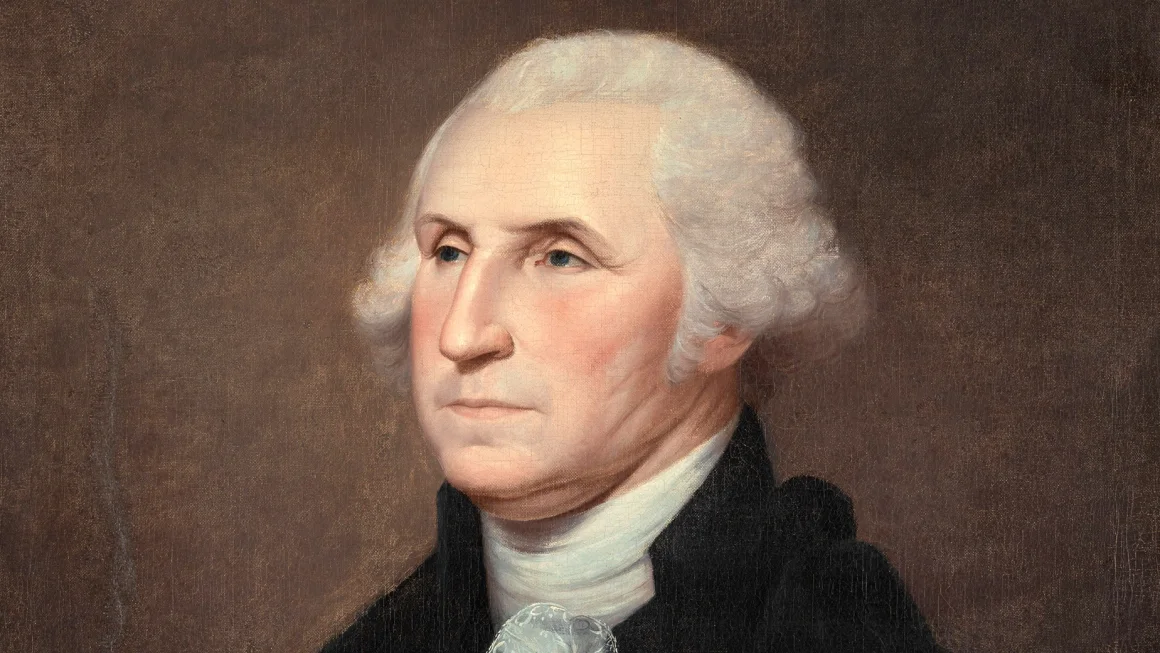
George Washington family secrets revealed by DNA from unmarked 19th century graves

What is Purim? What to know about the Jewish holiday that begins Saturday evening

NASA’s search for life on Mars: a rocky road for its rovers, a long slog for scientists – and back on Earth, a battle of the budget

A Rare Glimpse Into The Womb Of Hammerhead Sharks

Trump claims his indictments are enhancing his Black support. Here’s what the polls show

Adobe Stock.
Illuminating spiritual dimensions of the solar eclipse
As the world anticipates a celestial spectacle on April 8, acclaimed nature and religion expert Bron Taylor sheds light on a growing form of spirituality
Millions of Americans prepare to look skyward on April 8, when the moon will pass between the sun and Earth. As daylight turns to darkness, the rare cosmic spectacle will capture widespread national attention. But there’s more than an astronomical event at play, according to University of Florida religion professor Bron Taylor, and it points to a growing movement at the nexus of nature and spirituality.
“People are on their own pilgrimages, and they’re trying to work out their meaning systems,” Taylor said. “This widespread fascination with the eclipse is a prime example of a turn toward the re-sacralization of nature.”
Taylor, an esteemed environmental scholar and leading expert on religion and nature, has tracked global environmental trends over decades, identifying overarching patterns and changes. There’s a seismic shift sweeping across the American religious landscape, he says. Nature-based spiritual practices are on the rise.
The movement is evident all around us in the form of surging interest in astrology, tarot cards, veganism, crystals, and shamanism. Many express an emotional yearning to commune with and retreat into nature. Collectively, according to Taylor’s research, we are increasingly seeking deeper meaning, purpose, and values within the natural world.

“This helps to explain increasing interest in celebrating eclipses, equinoxes, and solstices,” Taylor said. “When people engage in these experiences, they often feel a sense of awe or astonishment.”
Taylor attributes the trend to a broader societal transition toward ecological consciousness, as humanity grapples with the challenges of climate change. This shift reflects a cultural movement arising from the aftermath of Darwin’s revelations in “On the Origin of Species,” published in 1859, which fundamentally altered perspectives on evolution.
“If we think long-term, the kind of cosmic vision and worldview that emerges from evolutionary and ecological understandings is becoming a very large part of the human story,” Taylor said. “Increasing proportions of the human community have that kind of worldview, and that’s a huge change over the last 160 years.”
The renaissance of nature-based spirituality may be giving religious institutions a run for their money. Twenty-seven percent of Americans say they are religiously unaffiliated, according to the polling firm PRRI. This is up from 16% in 2006. This demographic now constitutes the largest segment of the population, surpassing any single faith group.
For a number of people across the nation, then, the eclipse becomes more than a celestial event. Viewed through a lens of spirituality, it’s an awakening.
Taylor is renowned for coining the term ‘dark green religion,’ a fusion of ecological awareness with spiritual beliefs. He introduced the term in his 2010 book “Dark Green Religion: Nature Spirituality and the Planetary Future,” which unpacks the evolution of these emergent worldwide spiritual practices. Grassroots environmental movements, Taylor posits, have nurtured beliefs treating nature as sacred and non-human organisms as kin.
“It’s the idea that we owe these life systems reverent care, a sense that we ought not to fear death because death is the wellspring of new life,” Taylor said.

This is not a new phenomenon. Dark green religion traces back to ancient pagan roots, Taylor notes, but modern iterations of such eco-spirituality are increasingly grounded in scientific understandings and the interconnectedness of life.
“Humans have long crafted meaning in nature’s rhythms,” he said. “Today, some people are doing that much more self-consciously in forms of ritual. Others do it subconsciously by gravitating to experiences like eclipse viewings.”
Dark green religion has permeated the mainstream, with popular science figures such as Carl Sagan and Neill deGrasse Tyson contributing to the spiritual discourse. These influential figures offer narratives about the grandeur of simply existing as a complex multicellular organism on this planet and the experience of cherishing our connections as ‘star stuff’ within the broader story of cosmic forces and evolution.
“They craft scientific stories into sacred stories, evoking the same emotions — joy, ecstasy, reverence — that religions typically provide,” Taylor said.
In this context, bestselling books such as Richard Powers’ “The Overstory” play a crucial role. Powers presents an interconnected web of life, anchoring our lived experiences in the natural world and encouraging readers to take action to preserve nature for future generations. According to Taylor’s analysis, the foremost question posed by Powers is: What does life want from us?
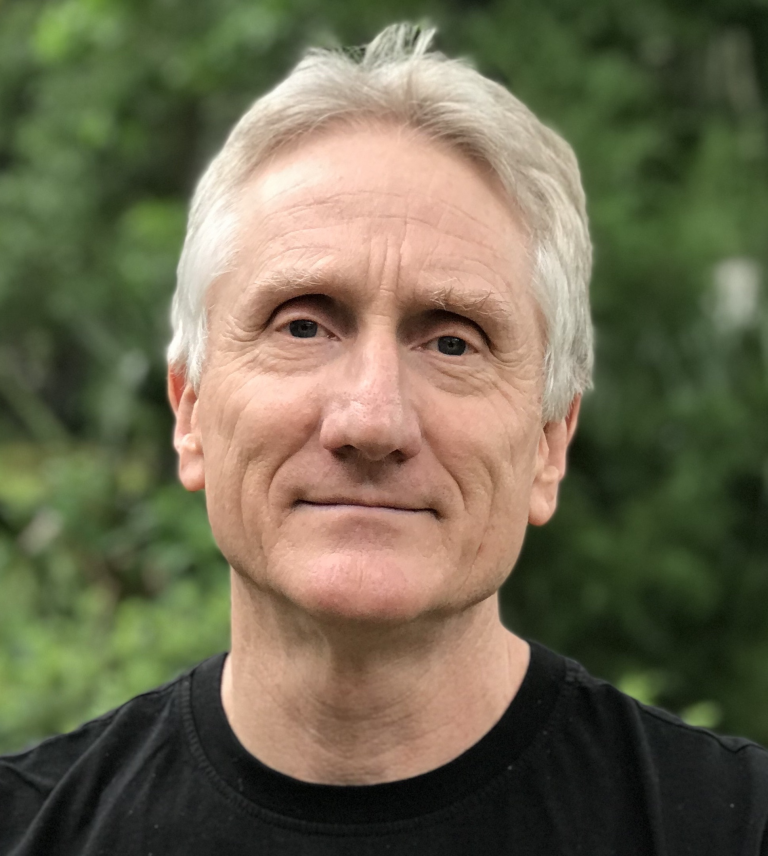
Ultimately, in this convergence of nature and spirit, a sense of cosmic belonging emerges, says Taylor. Interest in the eclipse underscores the unifying power of spirituality, fostering a connection with the vast cosmos. Taylor suggests these experiences can elevate us.
“These experiences, which give us a proper sense of humility by reminding us that we are just a speck in the universe, can be ennobling, and can help overturn anthropocentric hubris,” Taylor said.
As spiritual seekers turn toward Mother Earth to fill the spiritual void, the solar eclipse offers a moment for reflection and renewed reverence for life. Taylor explains that even scientists, in their deep understanding of the eclipse, may find themselves moved by spiritual insights during the event.
“The wild world has something to say to us,” Taylor said, “and we should be listening.”
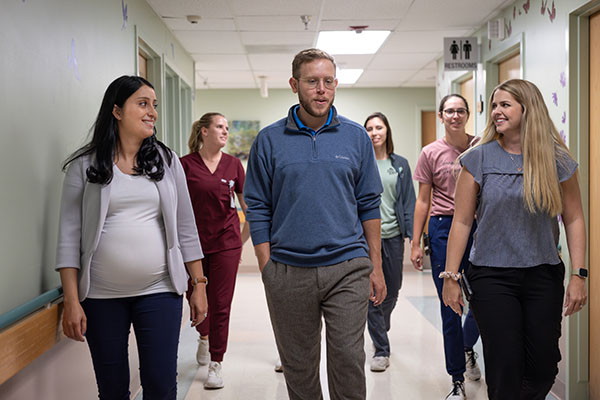
UF Psychology’s Vivian Ibañez tackles pediatric feeding disorders with cultural compassion
CLAS alumni shine on UF’s 40 Gators Under 40 list
UF Alumni Association recognizes 13 alumni from the college

The UF Alumni Association’s annual 40 Gators Under 40 program honors and celebrates alumni who have made significant impact on their communities, professional organizations, and the Gator Nation at large. The honorees exemplify the values of leadership, innovation, and service that define the UF spirit. This year, the College of Liberal Arts and Sciences proudly announces that 13 of its alumni have been selected for this prestigious recognition.
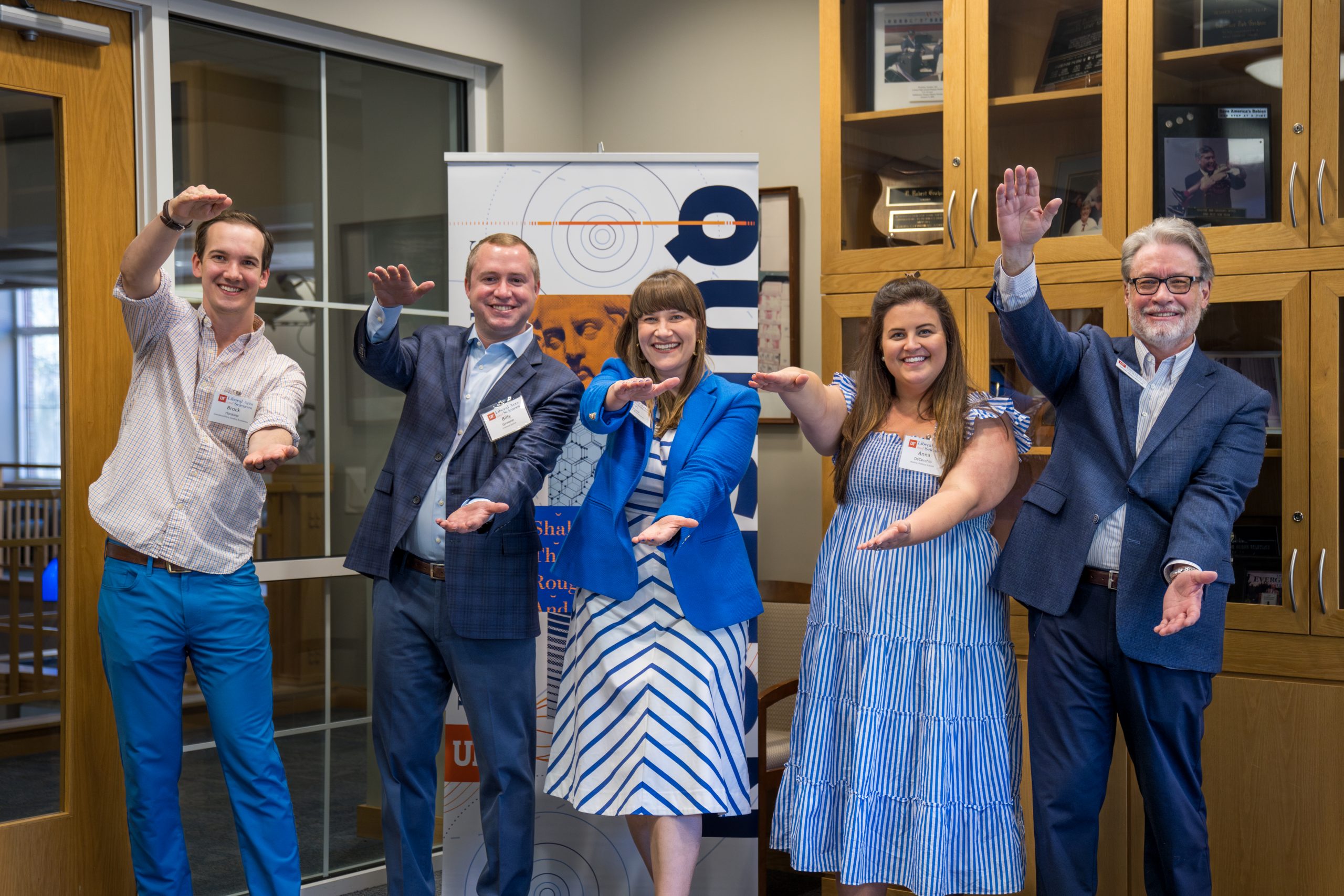
Please join us in celebrating the following outstanding CLAS alumni:
Avan Armaghani
Assistant Manager of the Department of Breast Oncology at Moffitt Cancer Center
Location: Tampa, FL
UF Degrees: BS ’09, HS ’09, MD ‘12
Avan Armaghani, a triple-Gator graduate, specializes in breast cancer treatment at Moffitt Cancer Center in Tampa. She is also a core faculty member at the University of South Florida and the Moffitt Cancer Center’s hematology/oncology fellowship program.
Armaghani is also an active member of the medical community, serving on committees like the Hillsborough County Medical Association, the American Society of Clinical Oncology, and the American College of Physicians. She is known for her advocacy of new medical technologies, helping develop the first mobile app for clinical trials at Moffitt Cancer Center. In addition to supporting girls in STEM through her volunteer work with Girls Inc, Armaghani also created a photography exhibit called ‘Portraits of Hope,’ a gallery showcasing the strength, courage, and resilience of breast cancer patients.
Brian Aungst Jr.
Shareholder for Macfarlane Ferguson & McMullen
Location: Clearwater, FL
UF Degrees: BSTEL ’05, BA Political Science ’05, JD Law ‘08
Brian Aungst Jr. graduated from UF in 2005 with degrees in Political Science and Telecommunication, then earned his JD in 2008. Since then, he has devoted his career to improving the lives of Floridians across Central Florida.
Aungst has contributed to numerous advisory boards, including the Board of Supervisors of the Central Florida Tourism Oversight District and the Juvenile Welfare Board of Pinellas County. He has been a staunch advocate for issues such as collective bargaining rights, domestic abuse, and affordable housing. Notably, he successfully obtained approval for over 500 much-needed affordable housing units in St. Petersburg.
Devin Bustin
Chief Medical Officer of OvaryIt LLC
Location: Jersey City, NJ
UF Degrees: BS Psychology ’07, MD Medicine ‘11
Devin Bustin boasts a BS in Psychology and an MD in Medicine from UF. Now, he wears many hats, serving as the Chief Medical Officer for OvaryIt, a company he co-founded with his wife. Additionally, he serves as the Head of Clinical Informatics at Atria Health, Associate Director of Clinical Informatics at Sollis Health, and works as an attending physician in the Mountainside Medical Center Emergency Department.
Bustin has a passion for ethical entrepreneurship centered on utilizing technology and novel healthcare delivery approaches to increase quality, efficiency, and access to care. In his various leadership roles, he remains committed to driving change and innovation within the healthcare sector.
Sirikanya Chiraroekmongkon
Psychiatry Resident Physician at Yale University’s Department of Psychiatry
Location: New Haven, Connecticut
UF Degrees: BA International Studies ’15, BS Chemistry ’15
Originally from Bangkok, Thailand, Sirikanya (Sanya) Chiraroekmongkon completed her undergraduate degrees in Biochemistry and International Studies at UF in 2015. However, her academic journey didn’t stop there. Chiraroekmongkon has since studied at Fudan University in China, the University of Central Florida, and Yale, honing her medical expertise.
Chiraroekmongkon is a champion of mental health, working as a physician for individuals with serious mental illnesses. She founded a nonprofit organization called Rising Youth, which aims to support high school students in maintaining their mental wellness. She has also been the recipient of several prestigious awards, including the Order of Pegasus, UCF’s highest honor.
Anna DeCerchio
Chief of Staff for the Florida Department of Environmental Protection
Location: Tallahassee, FL
UF Degrees: BA History ’12, BA Political Science ‘12
Anna DeCerchio left her home of Tallahassee to attend UF, earning degrees in History and Political Science before returning home to FSU for law school. Since graduating, she has held various positions within Florida’s state government. She worked as a Legislative Aide for Future Speaker of the House Paul Renner and has held several key policy roles in the DeSantis administration.
As a senior policy advisor to Governor DeSantis, DeCerchio played a pivotal role in securing funding for preservation projects in the Everglades, statewide toll relief initiatives, and the state’s response to red tide. Currently, she serves as the Chief of Staff for the Florida Department of Environmental Protection, where she oversees over 3,000 employees and the largest environmental budget in agency history.
Julia Furnari
Executive Director of Tapestry, Inc.
Location: Tampa, FL
UF Degrees: BS Marketing ’15, BS Psychology ‘15
After graduating summa cum laude with degrees in Marketing and Psychology, Julia Furnari went on to obtain a master’s degree from Columbia University in Nonprofit Management. Her love of philanthropy would drive her to join the Tapestry Foundation in 2017, a New York-based house of modern luxury lifestyle brands including Coach, Kate Spade and Stuart Weitzman.
Over the years, Furnari progressed within the organization, ultimately assuming the role of Executive Director. In this capacity, she wields significant influence over the company’s philanthropy and donations. Since taking on this role, she has awarded thousands of scholarships to underprivileged and underrepresented students across the globe, and is responsible for executing over $200 million in donations. She also pioneered the establishment of the $50 million Tapestry Foundation.
Erin Gillaspie
Chief of Thoracic Surgery and Associate Professor at Creighton University Medical Center
Location: Omaha, NE
UF Degree: BS Microbiology & Cell Science ‘04
Erin Gillaspie earned her first college degree while still in high school, foreshadowing her subsequent professional success. She went on to earn a Bachelor’s degree in Microbiology and Cell Science at UF in just two years, after which she began medical school.
After finishing a general surgery residency at Bassett Medical Center and a thoracic surgery fellowship at Mayo Clinic, she joined Vanderbilt as an Assistant Professor of Thoracic Surgery, where she dedicated her time to mentoring students and developing new programs, like a robotic education program and new tools for educating patients about lung cancer. Subsequently, Gillaspie assumed roles of Chief of Thoracic Surgery and an Associate Professor with Tenure at Creighton University Medical Center, making her one of the few women to achieve the prestigious position.
Jennifer Goetz
Director and Inpatient Psychiatry/Eating Disorder Clinical Care Consultant at Mass General Brigham Salem Hospital/Mass General
Location: Cambridge, MA
UF Degrees: BS Psychology ’09, MD Medicine ‘13
Jennifer Goetz earned a BS in Psychology from UF in 2009, marking the beginning of her journey toward specializing in caring for patients with eating disorders. After earning her MD in Medicine in 2013, she began working for Harvard Medical School and the nearby McLean Hospital, where she played a key role in opening a new child and adolescent unit in an underserved area of the state.
Goetz’ dedication and expertise earned her recognition from colleagues, resulting in referrals locally, regionally, and nationally. Her exceptional clinical care for pediatric patients with eating disorders at Johns Hopkins Hospital led to her being recognized as a “Top Doctor” by Baltimore Magazine. Currently, she is engaged in addressing service gaps in eating disorder care across the Mass General Brigham system, aiming to enhance mental health support for her patients.
Raleigh “Billy” Greene
Managing Partner/Attorney for Greene & Greene, Attorneys at Law
Location: Saint Petersburg, FL
UF Degrees: BA Criminal Justice ’07, JD Law ‘11
Raleigh “Billy” Greene, a native Floridian, graduated twice from UF, earning a BA in Criminal Justice and a JD in Law. Specializing in family law, including both litigation and collaborative divorce, he practices as a managing partner alongside his wife and father at Greene & Greene.
Throughout his career, Greene has garnered numerous awards and honors. In 2017, he was awarded the Canakaris Family Law Inn of Court “Young Lawyer of the Year” award and was bestowed the Distinguished Citizen Award by Boy Scouts of America for his community and philanthropic contributions. He has also achieved an AV rating from Martindale Hubbell and has been designated by both Super Lawyers and Best Lawyers. As Chair of the YMCA of Greater St. Petersburg, he has led transformative projects including joint development with the School Board for a health facility and magnet school.
Brock Hankins
Deputy General Counsel and Chief Digital and Artificial Intelligence Officer at the Department of Defense
Location: Orlando, FL
UF Degrees: BA Interdisciplinary Studies ’10, BA Economics ’10, JD Law ‘14
Brock Hankins graduated with degrees in Economics and Interdisciplinary Studies in 2010, and would later graduate with his JD in Law in 2014. He now serves as Deputy General Counsel for the Department of Defense’s Chief Digital and Artificial Intelligence Officer, where he plays a pivotal role in shaping AI adoption and regulation nationwide.
Outside of work, Hankins is deeply engaged in community leadership. He holds the position of Secretary for the UF Law Alumni Council, was elected to the Board of Governors for The Florida Bar’s Young Lawyers Division representing out-of-state attorneys, provides pro bono legal counsel for Florida Diabetes Camps, serves on the Board of Directors for the Florida House on Capitol Hill, and is an advisory board member for Orange County’s Citizen Commission for Children.
Justin Kintz
Senior Vice President at Peloton
Location: Arlington, VA
UF Degree: BA English ‘07
Justin Kintz has spent the 16 years since graduating with a BA in English working with governments around the world, beginning with an appointment to the Bush administration in 2007. From there, he transitioned to the Transatlantic Business Council as a multinational advisor, before joining Uber. With his help, this small company established itself in all 50 states and 70 countries globally, becoming the most well-known name in ridesharing. In 2021, Kintz left Uber to join Peloton as a Senior Vice President.
Kintz serves as an advisor for numerous institutions, joining the Board of The Internet Association in 2015, the Autonomous Vehicle Industry Association from 2016-2018, The Economic Club of Washington, D.C., and the Board of Directors for the University of Florida Gator Boosters. He also volunteers his time by advising aspiring political candidates and startup founders, and serves as the editor of his community newsletter.
Donovan Thompson
Research and Technology Manager for Albemarle Corporation
Location: Prairieville, LA
UF Degree: PhD Chemistry ‘14
Donovan Thompson graduated from the Department of Chemistry in 2014, where he spent his time studying and performing research in the Butler Polymer Lab under Professor Kenneth Wagner. Since setting out on his own, Thompson has released more than 20 publications, scientific presentations, patents, and three commercial products. In his current role at the Albermarle Company, he has led the commercialization of New Products in Food Safety.
His hard work has been recognized many times, such as the Colgate-Palmolive and SMART Science Awards, AkzoNobel 2017 Early Career Scientist Award, the 2020 New Brunswick (NJ) Alumni Mentorship Service Award, and even an appearance on Georgia Southern University’s 40 Under 40 list in 2018.
Gordon Van Owen
Lead Teacher for the New York City Department of Education
Location: New York, NY
UF Degrees: BA English ’06, BSJ ’06, MAMC ‘08
Gordon Van Owen arrived at UF in the early 2000s as a closeted gay man. Over time, he became a champion for LGBTQIA+ students, both as a student and after graduating with a BA in English in 2006. Having received major support from his peers, he wants to ensure that future LGBTQIA+ students have a similar positive experience. To this end, he has served on the Gotham Gators, helped re-launch the Association of LGBTQ+ Alumni, and connected students and funded scholarships.
During his time at UF, Van Owen also discovered a love of teaching, primarily through his time teaching at the College of Journalism and Communications. He has since transitioned to the New York City Department of Education, where he contributes to writing AP English curricula and mentors emerging educators.
Congratulations to all the honorees for their remarkable achievements and contributions.
For more information about the “40 Gators Under 40” program and to view the complete list of this year’s honorees, please explore here.
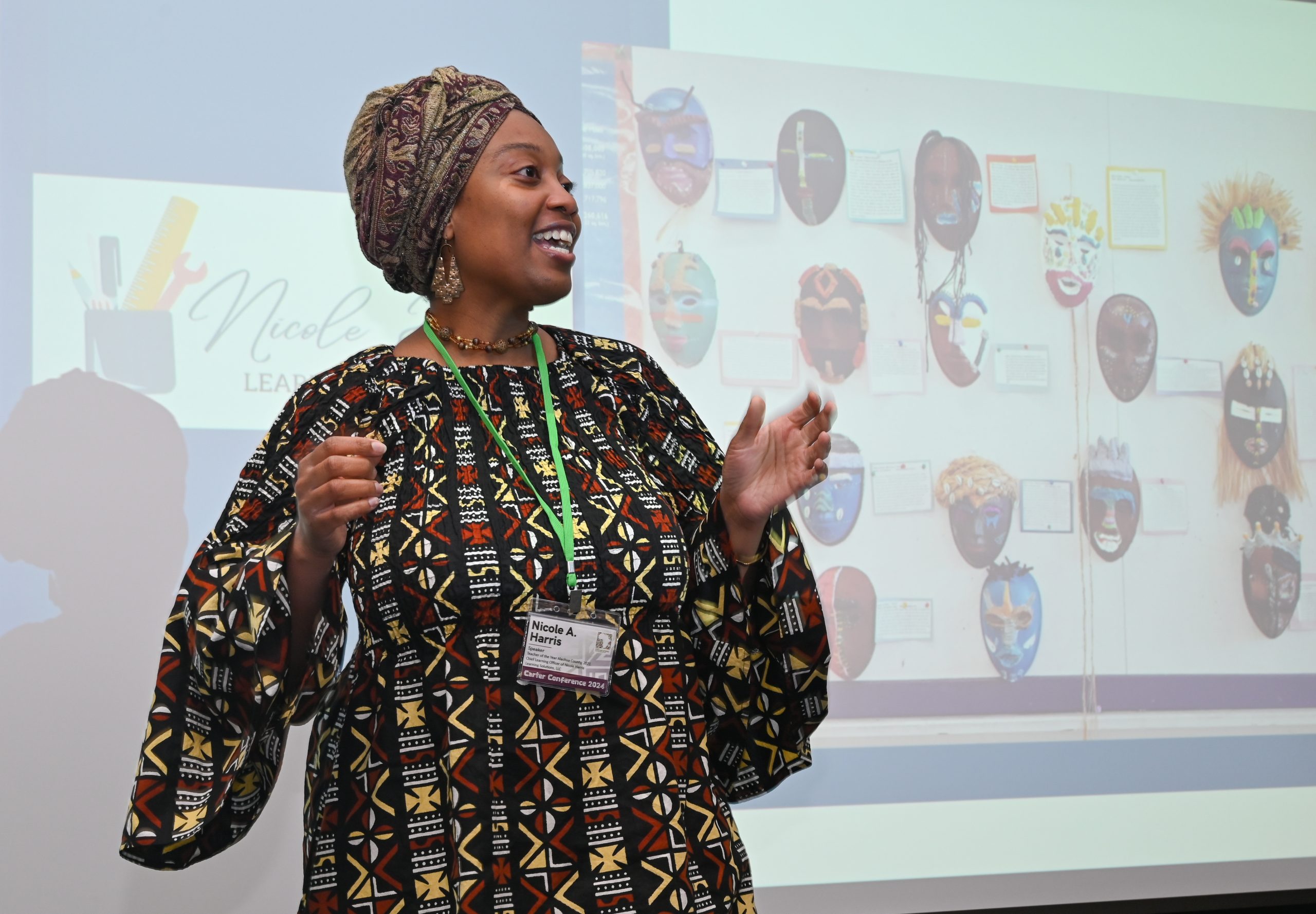
Nicole Harris leads a discussion on innovative ways of infusing Africa and the diaspora in K-12 curriculum. Photo by Matthew Dupont.
UF’s Carter Conference examines Africa’s future
Center for African Studies propels insight and collaboration on contemporary African studies
The University of Florida’s Center for African Studies hosted its annual Gwendolen M. Carter Conference, uniting leading experts, scholars, students, and community members to address pressing issues facing Africa’s people and environments.
Held on March 21 and 22, the conference served as a platform for fostering dialogue, collaboration, and knowledge exchange as participants examined the continent’s future challenges and opportunities. The two-day event featured presentations, workshops, and discussions covering a broad spectrum of topics, from environmental sustainability to public health and education.
Presenters from nine states and six countries joined dozens of UF faculty members to showcase their expertise and engage in robust discussions. Attendees had the opportunity to interact with scholars in the field and participate in sessions that examined the complexities of contemporary African topics.
“We wanted to bring the very best minds in African studies to the University of Florida — experts who are addressing the continent’s greatest challenges, helping its peoples meet their opportunities, and working with them to overcome injustice and inequalities,” said Miles Larmer, the center’s director and professor of history.
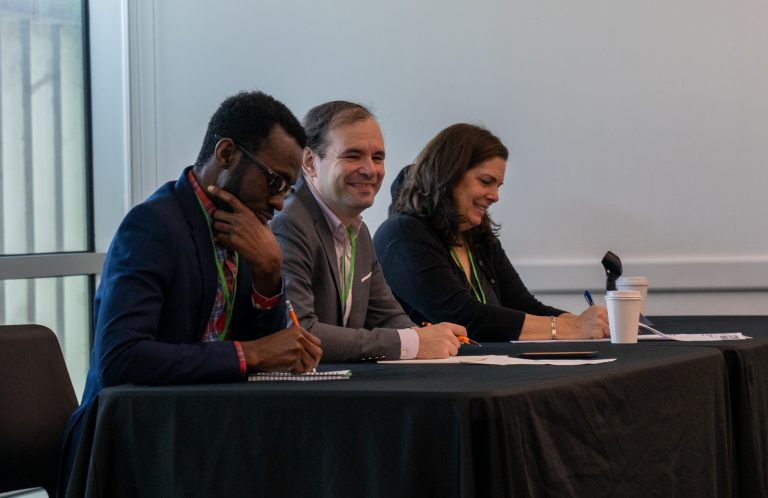
This year’s conference, themed “CAS @ 60: New Directions in African Studies,” explored the evolving landscape of African studies. Larmer underscored that the center’s future will be shaped by the ‘new directions’ of Africa and Africans, emphasizing the pivotal role of the continent’s youthful and expanding population in addressing urgent global challenges.
“The center will engage with them, provide educational opportunities and meaningful research that addresses their hopes and ambitions, and do everything we can to contribute to the positive future development of the continent and its peoples,” Larmer said.
Many of the conference’s speakers, including Zainab Usman of the Carnegie Endowment for International Peace and Bright Gyamfi from the University of San Diego, recently completed their doctorates. Larmer praised their fresh insights, which complemented those of more established scholars.
“Innovation requires us to listen and learn from the newest generation of African Studies scholars, many from the continent itself, who are challenging everything we thought we knew about African studies,” Larmer said.
The conference’s theme of ‘new directions’ is fitting for the times. As the center looks toward its seventh decade, Larmer’s arrival during the fall semester of 2023 has ushered in a new chapter. With a distinguished career spanning over a decade at the University of Oxford and a robust portfolio of research in the modern history of southern and central Africa, Larmer brings expertise as a leading authority in the field to his new role.
“I’m constantly delighted — and only occasionally intimidated — by the responsibility of guiding one of America’s most important centers of excellence in African studies into an exciting but always uncertain future,” Larmer said.
In his new role, Larmer will spearhead initiatives to promote interdisciplinary research, foster academic collaboration, and elevate the study of Africa within the university community and beyond. His vision for the center includes engaging in critical conversations about Africa’s past, present, and future while uniting a robust population of over 100 affiliated teaching and research faculty.
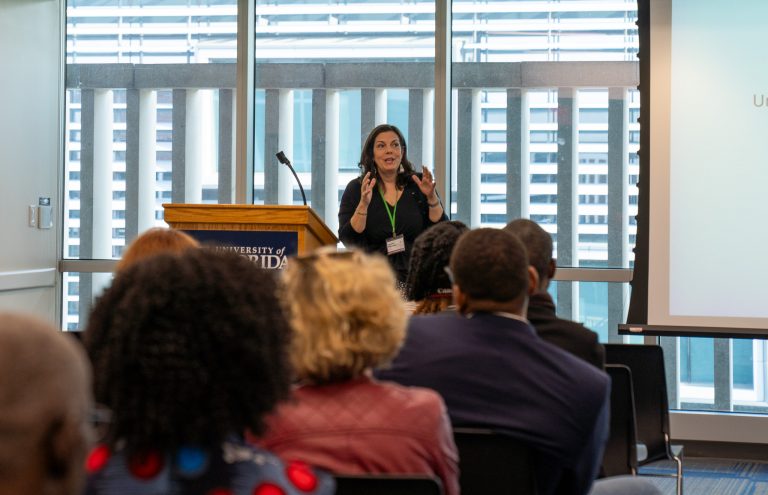
At the conference, UF students, faculty, and former directors of the center made notable contributions. Agnes Leslie, senior lecturer in the Center for African Studies, convened a panel focused on creative ways of teaching about Africa.
“Thanks to the center’s decades of outreach to local communities and K-12 schools, we’re able to discuss cutting-edge issues alongside educators who explain how schools here and nationwide are innovating in teaching about Africa,” Larmer said.
In another session, Leonardo Villalón, professor of African politics, led a roundtable on collaborative research in conflict-affected areas, drawing lessons from the Sahel in partnership with members from the Sahel Research Group and the International Crisis Group.
“We have world-leading experts here,” Larmer said. “UF’s Center for African Studies and the university’s Africa-related programs are delivering cutting-edge research that is positively impacting the lives and livelihoods of millions of African people.”
For over thirty years, the center has honored the legacy of renowned scholar Gwendolen M. Carter with annually organized lectures or conferences. Carter’s work focused on the politics of inequality in southern Africa, significantly advancing African studies as an academic discipline.
“Key issues, themes, and priorities will come and go,” Larmer said. “What remains true is that the best way to address our challenges and problems is to meet, talk, and listen together to diverse voices and perspectives.”
Learn more about the Center for African Studies here.
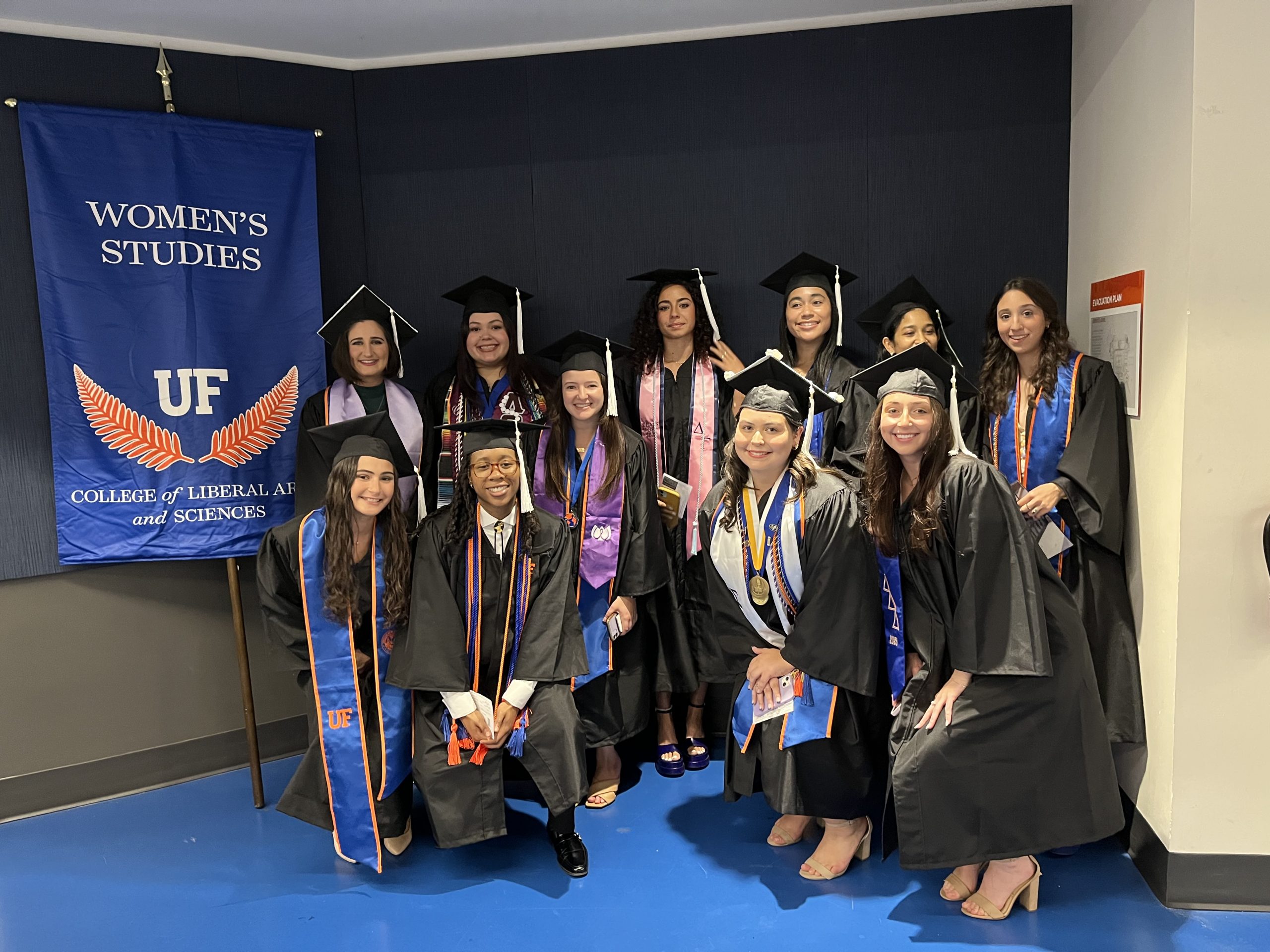
A group of Women's Studies graduates celebrate.
Mellon Foundation grant recognizes UF Women’s Studies Department strengths
In a testament to its dedication to academic excellence and community engagement, the Department of Gender, Sexuality, and Women’s Studies at the University of Florida has been selected as a recipient of a prestigious ‘Affirming Multivocal Humanities’ grant from the Andrew W. Mellon Foundation. The funding, awarded during the fall 2023 semester, marks an important milestone for the department and underscores its contribution to innovative scholarship in the humanities.
The ‘Affirming Multivocal Humanities’ grant will advance the department’s mission by supporting various curricular and co-curricular initiatives over the next two years, including community-engaged student research, a career pathways series, and efforts to promote public understanding of the field.
“We’re thrilled that the Mellon Foundation is recognizing and supporting the work that we’re doing here at UF,” said Bonnie Moradi, chair of the department and professor of psychology. “Experiential learning and community engagement have been longstanding strengths of Gender, Sexuality, and Women’s Studies. This grant builds on these strengths to provide students with rich research and career readiness opportunities that serve communities and benefit the social good.”
Annually, the department places over two hundred students in more than thirty internship and practicum sites. With the grant’s support, the department plans to establish an alumni mentoring network for students, further expanding its experiential learning program.
According to Moradi, students have responded enthusiastically to grant events and opportunities. Through Mellon grant events, students are engaging with scholars, practitioners, policymakers, entrepreneurs, and alumni across various fields.
Moreover, students have joined research teams funded by the grant, collaborating with faculty on community-engaged research projects. These mentored projects allow students to develop critical skills while providing service to community centers, education programs, health clinics, victim services, and other settings.
“Students are telling us that these experiences are a distinctive part of their UF experience that they will remember and carry forward,” said Moradi.
The grant will also help the department elevate platforms for students and alumni to share the impact of their education in Gender, Sexuality, and Women’s Studies.

“Our students have inspiring stories about what they’re learning as Women’s Studies majors and how they’re benefiting communities in Florida and beyond,” said Moradi.
Through project activities, participants will reflect on their learning and create accessible and public communications using narrative-building and storytelling techniques. These narratives will not only serve to highlight the personal and professional growth of those involved but will also underscore the significance of their education in fostering positive change within the communities they serve.
Moradi looks forward to leveraging the funding to enhance the department’s intellectual environment and promote broader advancement of knowledge in the field.
“The legacy of this grant will be to capture and share our students’ stories about their learning, accomplishments, and professional pathways as Women’s Studies majors,” said Moradi. “We are thrilled about the student opportunities we can create and we’re proud of our students’ work.”
The Mellon Foundation has granted over $18 million to 95 public colleges and universities across 66 institutions through its ‘Affirming Multivocal Humanities’ initiative. This funding supports activities advancing the study of race, ethnicity, gender, and sexuality. Grants were awarded based on institutions’ contributions to gender and ethnic studies. Explore the initiative here.